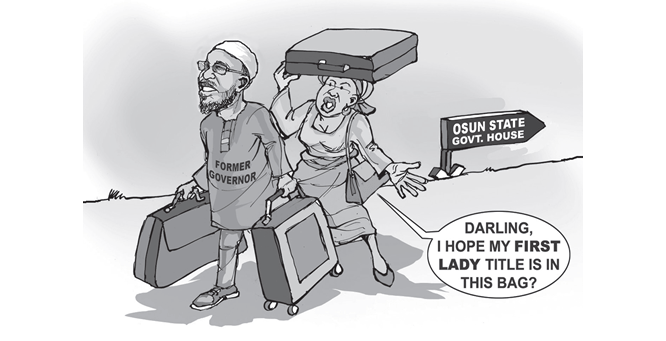
A few days ago, Nigeria was thrown into mourning again following the brutal massacre of over 100 soldiers serving in the 157 Task Force Battalion at Metele village, Guzamala Local Government Area of Borno State. The gruesome attack, we learnt, occurred about 6p.m. on November 19. The unfortunate incident saw our troops caged, outnumbered and over-powered by the assailants.
The bloody incident had the fingerprints of Boko Haram written all over it – a well-choreographed ambush, culminating in a senseless mass murder of people by a band of guerrilla fighters from hell. As expected, the Islamic State West Africa Province (ISWAP), the mother terrorist franchise in the region, has boldly claimed responsibility for the action.
The terror group left no room for the Nigeria Armed Forces to deny that the raid never occurred at Metele. As if to further clear our doubts, ISWAP released video footages showing their triumph over our troops. A second video showing the massive destruction of the military base and all the military hardware by the attackers has also been trending on social media.
A voice-over commentary on the second video has further exposed the flip side of the counterinsurgency war in the North-East, as the commentator, who is apparently a Nigerian soldier, expressed total helplessness and hopelessness of the troops on the frontlines. This is not only despicable, it is a disgrace and a national tragedy.
If what the anonymous soldier said in the video is anything to go by, the Nigerian Army deployed obsolete and sub-standard military equipment to the troops in the war zone. This is happening despite the huge sums of money allocated to defence in the national budget in the last three years.
This has once again thrown up the lingering suspicion that monies budgeted for the procurement of equipment and proper kitting of troops may have been disappearing along the way.
The nature of the attack and the staggering casualty figures is very worrisome and has brought to question the claim by the Presidency and the military top brass that Boko Haram had been technically defeated, decimated and degraded to a level where they no longer have capacity to engage in battles. It is important that the Nigerian Army reassesses its strength, weakness and strategies against the threat posed by Boko Haram.
Like in previous tragic incidents, President Muhammadu Buhari has expressed grief and assured that immediate measures would be taken to ensure that the loopholes, which led to the fatalities, were blocked once and for all.
We think that these rhetorics that usually flow in moments of national tragedy are beginning to lose their soothing balm because there seem to be no real plan of action to back them up. It is high time the Presidency did a thorough review of the counter-insurgency war in the North-East in terms of men, materials and strategies.
This incident brings back the clamour by some Nigerians that the current crop of service chiefs, whose legitimate tenures in office had expired, should be allowed to go on retirement to give room to younger officers with fresh ideas. It is hard to comprehend why the service chiefs are still being retained when there are obvious signs that they have reached their limits in terms of age, capacity and competence.
Again, we cannot continue to treat with levity, the demand for better equipment for troops on the battle field because that would be tantamount to sending the troops to the frontline on a suicide mission. There is an urgent need to audit the disbursement of funds to the military formations engaged in the war against the terrorist group.
We can no longer afford to continue to deploy our hard earned resources to a war that appears to be a bottomless pit. The Federal Government also needs to reassess its continued participation in the Joint Multinational Task Force (JMTF), which was conceived to galvanize support from the national armies of Niger, Chad, Cameroon and Nigeria against Boko Haram. If we cannot work together to secure our common borders, Nigeria must begin to take its destiny in its own hands.
In fact, the plague of insecurity across Nigeria, particularly in the North-East, can be traced to our porous borders with our neighbours. Rather than deluding ourselves that our neighbours will watch our back and ward off these incessant cross-border terrorist attacks, Nigerians must demand from our government a clear border security strategy.
If our borders remain porous and continue to witness uncontrolled movement of people in and out, we cannot reasonably expect an end to these raids on our communities and military formations near our borders. We cannot claim to be committed to protecting lives and property in Nigeria while leaving our borders largely unmanned.
As we march towards the 2019 general elections, we must make the security of our borders a major campaign issue and insist that those who seek our mandate must be those who understand the issues at stake.
END

Be the first to comment